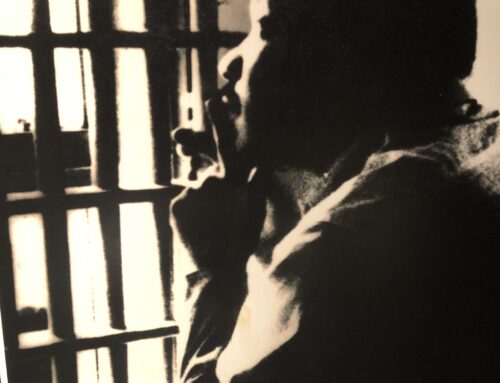 You failed. You committed a terrible sin. Beyond offending God, the consequences of that sin were severe. You lost the respect of your family and friends. Maybe you lost your health or your financial security. Personal sin always affects others, and the pain inflicted is often irretrievable.
You failed. You committed a terrible sin. Beyond offending God, the consequences of that sin were severe. You lost the respect of your family and friends. Maybe you lost your health or your financial security. Personal sin always affects others, and the pain inflicted is often irretrievable.
Now you’re more than sorry. You have awakened to the depth of your sin and have repented. You have in every way possible turned away from that sin and abandoned the habits or lifestyle that led to your failure.
God forgave you. Other people have offered forgiveness. But now it’s your turn. The ugliness of your sin overwhelms you. How could you have done this? What were you thinking? How can you ever make it up to God or the people you hurt?
We know what God has done with our sin. He has cast it as far as the east is from the west (see Psalm 103:12). But what do we do with our sin? These truths may help:
Remember that one act of sin is a symptom of a bigger problem.
David said he was “brought forth in iniquity”—Psalm 51:5. We are sinners; therefore, we sin. So while our sin act is a problem, our sin nature represents our greatest need before a holy God.
Paul asked, “Who will set me free from this body of this death?”—Romans 7:24b. The answer: “Thanks be to God through Jesus Christ our Lord!”—Romans 7:25a. Only Jesus rescues from our sin problem.
Receive God’s grace as fully as it is applied.
In Psalm 51:1-2, David asked for God’s grace to be applied according to God’s character. So he trusted God to wash him “thoroughly”…through and through. Thankfully, God grants forgiveness according to the depth of His compassion rather than according to the severity of our sin.
Failing to forgive ourself does not highlight the horror of our sin, but instead grossly discounts the greatness of our God.
Retrain your heart for joy.
David asked God to give him ears to hear joy and gladness. He also asked God to reset his broken bones so that he could dance again in worship to His God. Read Psalm 51:8.
Can we enjoy life after failure? Or do those who have sinned “big” deserve to walk in misery the rest of their days? David experienced freedom after failure because God washed him and then “made” him to know joy. Delight is reserved for those who delight in God.
Run forward with confidence.
David asked God to “renew a steadfast spirit” in him (Psalm 51:10). He trusted God to expand His Kingdom influence so that he could “teach transgressors” how to follow God and that “sinners will be converted” to God (Psalm 51:13).
We never celebrate sin, but we also know failure does not have to be final. There is a big future ahead for big sinners when we return to God in a big way. In God’s economy, brokenness is never a handicap for Kingdom impact.
Finally
Often those closest to us bear the pain of our personal sin. And that reality often produces guilt and even despair. There’s nothing anyone can do to replace what has been lost.
But David declared, “A broken contrite heart, O God, Thou will not despise” (Psalm 51:17). The consequences of sin are real. But for the repentant, God fashions those consequences for something better. There is “no condemnation” (Romans 8:1). And the Gospel not only builds a better future for us but for everyone around us.




